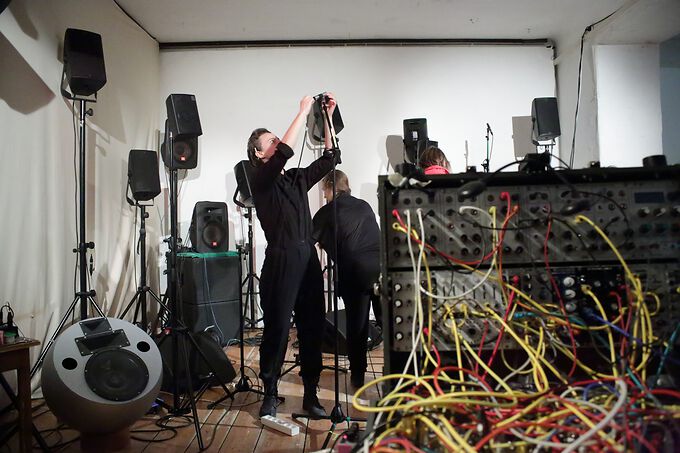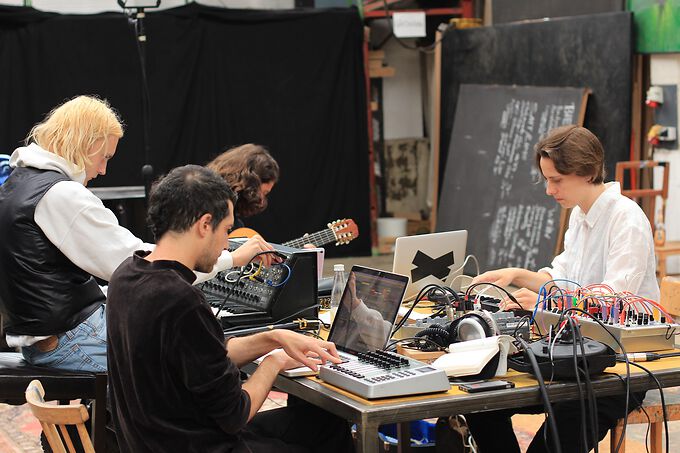certificate program in
e l e c t r o a c o u s t i c a n d e x p e r i m e n t a l m u s i c
The Certificate Program in Electroacoustic and Experimental Music (ELAK) is internationally renowned for newest music and sound art. The program focuses on audible art as the result of critical-innovative and experimental approaches. Traditional techniques, immediate contemporaneity and forward-looking development are cultivated in their respective relevance and unconventional approaches are given wide scope. The range of possible styles is a priori unrestricted, although clichés are questioned all the more critically. The artistic, technological and scientific experiments can be condensed into methods and concepts of “artistic research” and systematically continued accordingly. Experimental practice is supported by competence in current discourses, in the canonical and contemporary repertoire, as well as by contemporary research methods in analysis and research. A basic understanding of the available means of production is acquired in theory and practice and deepened to the greatest possible extent. In project practice, efficient and cooperative working methods are practiced in conception and realization. Particular emphasis is placed on openness of approach, diversity and ethical principles as well as social skills. The program fosters in-depth cooperation with the Viennese and international music scene through guest lectures, workshops and joint concert events.
Study goals:
After completing the program, students are able to pursue a self-confident and reflective path as a professional artist at an international level. The trained artists have a (self-)critical sensorium and excellent theoretical and practical skills in dealing with the relevant media technologies. Their qualifications include the independent conception, realization and presentation of works in their subject area and working in teams and in communication with institutions. Graduates of the program enjoy a high reputation due to their comprehensive artistic and technological competence and are internationally successful, visible through high-ranking festival participations, scholarships and awards.
The following focal points characterize the study program and cover a broad spectrum within the acoustic arts:
- Electroacoustic Music:
Composition involving the conception and realization of electroacoustic music of the most diverse aesthetics with analog or digital means of production. This includes in particular the tradition of acousmatic composition, i.e., music for spatially distributed loudspeaker systems. The cultivation of the concepts of sound material, concrete as well as synthetic sounds as a stock of material for musical composition, and sound transformation, elaborate techniques for its transformation, is decisive for the profile. - Extended musical performance:
Extension of live musical performance (instrument/body/voice) by means of electro-acoustic techniques (live electronics) and transmedia methods. The practice of confident performance and improvisational skills are key features of this focus. - Installative sound art:
Auditory art with a strong material, object and/or spatial reference. The development of convincing concepts, the selection of suitable methods of implementation and staging issues characterize this thematic focus. - Development of electroacoustic instruments and epistemic audio art:
Research-based, artistic-scientific approaches to electroacoustic and experimental music and sound art using conceptual, technological, transmedial means. This includes directly application-oriented technological developments as well as methods of music and media informatics, e.g., signal processing, New Interfaces for Musical Expression (NIME), Music Information Research (MIR) and Machine Learning.
Course management:
Thomas Grill, Dr.phil. MA. (Sabbatical)
Angélica Castelló, MA (Deputy Head)
further information:
Information sheet & Curriculum
Overview of all persons working at IKT
www.elakwien.at (extern)






